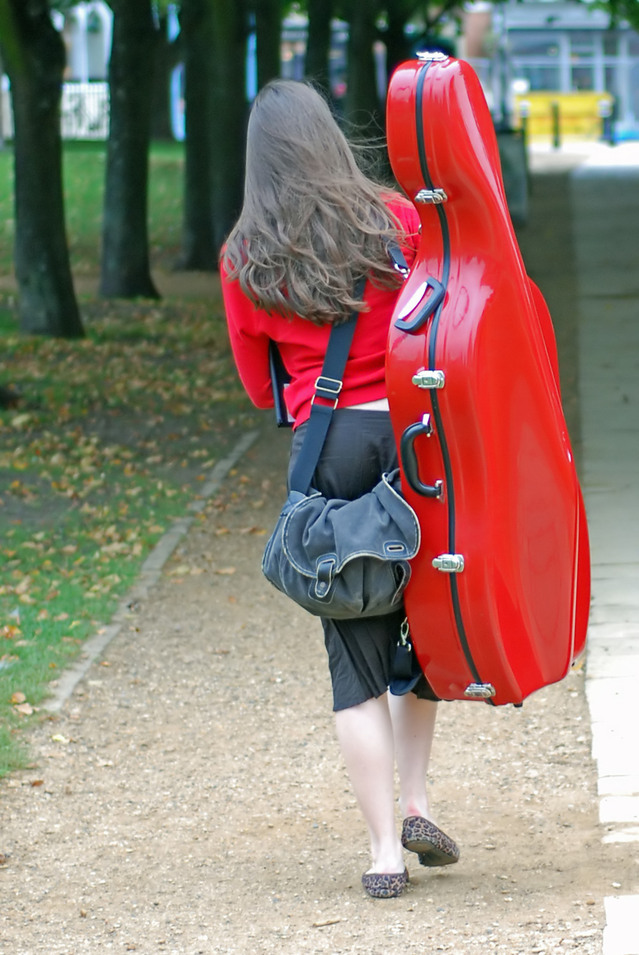There are many options for where to teach private lessons. You can instruct at your home, rent a studio, work at a music store, or go to students’ homes. Each location has its’ own benefits and drawbacks. I teach about half of my students at my house and another half at their homes.
Teaching in Your House.
There are several advantages to teaching students at your home. It is time-efficient, resulting in the highest hourly pay. There are some drawbacks, as well.
Pros –
– You save much time on travel.
– You have your method and repertoire books handy.
– Your average hourly pay is the highest.
– You can adjust the seating position of a student properly. Sometimes when you go to their houses, you discover that students’ benches are not the right height (usually too low), and there is not a reliable way to adjust them.
– It is very convenient.
Cons –
– You have to have a piano in good shape. Most of my students have poorly maintained pianos at their home, so you don’t need to worry about your instrument being top-notch.
– You will need to be regularly cleaning. There will be foot traffic, sick students in your house, and occasionally clogged toilets.
– You will need a big enough space for parents, siblings, and other students to wait.
– You will need to have a reasonably quiet place. I don’t believe that a music studio has to be completely quiet. If you’ve ever studied in a college of music, you know how noisy those buildings are. Professional musicians are used to distractions. I view reasonable outside noises as a good challenge for staying focused.
– When you are not well known in the area, it is harder for you to recruit students who are willing to come to your house.
– You will need liability insurance in case someone falls in your house. For your protection, you also might need to videotape the lessons. Some parents drop their kids off and leave.
Teaching in Students’ Homes.
Teaching in students’ homes involves much driving and lost time, but there are some benefits as well.
Pros:
– You don’t need a piano. You do have to be ready to use some poorly maintained pianos in their houses. I’ve seen many times when students get a “free” piano, which is barely working.
– You don’t have to clean after students
– It is easier to recruit students when you start teaching in a new area.
– You get little breaks between students while you are traveling.
– Potentially you will be able to switch the students to your home studio
– You don’t need liability insurance.
– Turnover rate is very low
Cons:
– You spend much time traveling. I try to schedule multiple families in the same area. That saves me a lot of travel time. I don’t go to just one student anymore.
– Your hourly pay is considerably less than teaching from your home.
– You need to bring method and repertoire books with you to pick new pieces.
– For protection, be ready to video record lessons. I’ve had parents leave the house during lessons leaving me alone with their child.
Teaching at a music store.
Pros:
– It is time-efficient.
– You don’t need to recruit.
– You don’t need a piano.
– Pianos are usually very well maintained.
– You can do your practicing at the store too.
– You don’t need to communicate with students via email about rescheduling lessons.
– You get many students quickly.
– Some stores provide performance space for studio recitals.
Cons:
– Your pay is meager. Typically, music stores will take about 50% or more of your fee.
– Your turnover rate is very high
– You cannot switch the students to your home studio.
– You would need to travel to the store
Renting a Place.
I’ve never rented a place to teach lessons, but I know teachers who do.
Pros:
– You spent little time to travel.
– You don’t need a piano, but be ready to work on an instrument that will be out of tune. Usually, places that rent teaching spaces don’t tune their pianos often enough. A real piano may not even be available, just a keyboard.
– You can schedule students back to back.
– You don’t need to clean after students.
– You don’t need liability insurance
Cons:
– You need to pay for the rent
– The piano can be in an inferior condition.
– You need to bring method and repertoire books with you to pick a new repertoire.
– For your protection, be ready to videotape your lessons in case if a parent leaves you alone with a child.
I hope you find this article helpful.
Please post your comments or ask questions below.

Rudolf Ozolins
Rudolf Ozolins holds a DMA in piano performance from Michigan State University. He has a well-established piano studio in Detroit Metro Area. Rudolf works as an accompanist at Oakland University with Flute studios of Sharon Sparrow, Jeff Zook, and Amanda Blaikie. He actively concertizes as a chamber musician.



Comments are closed.